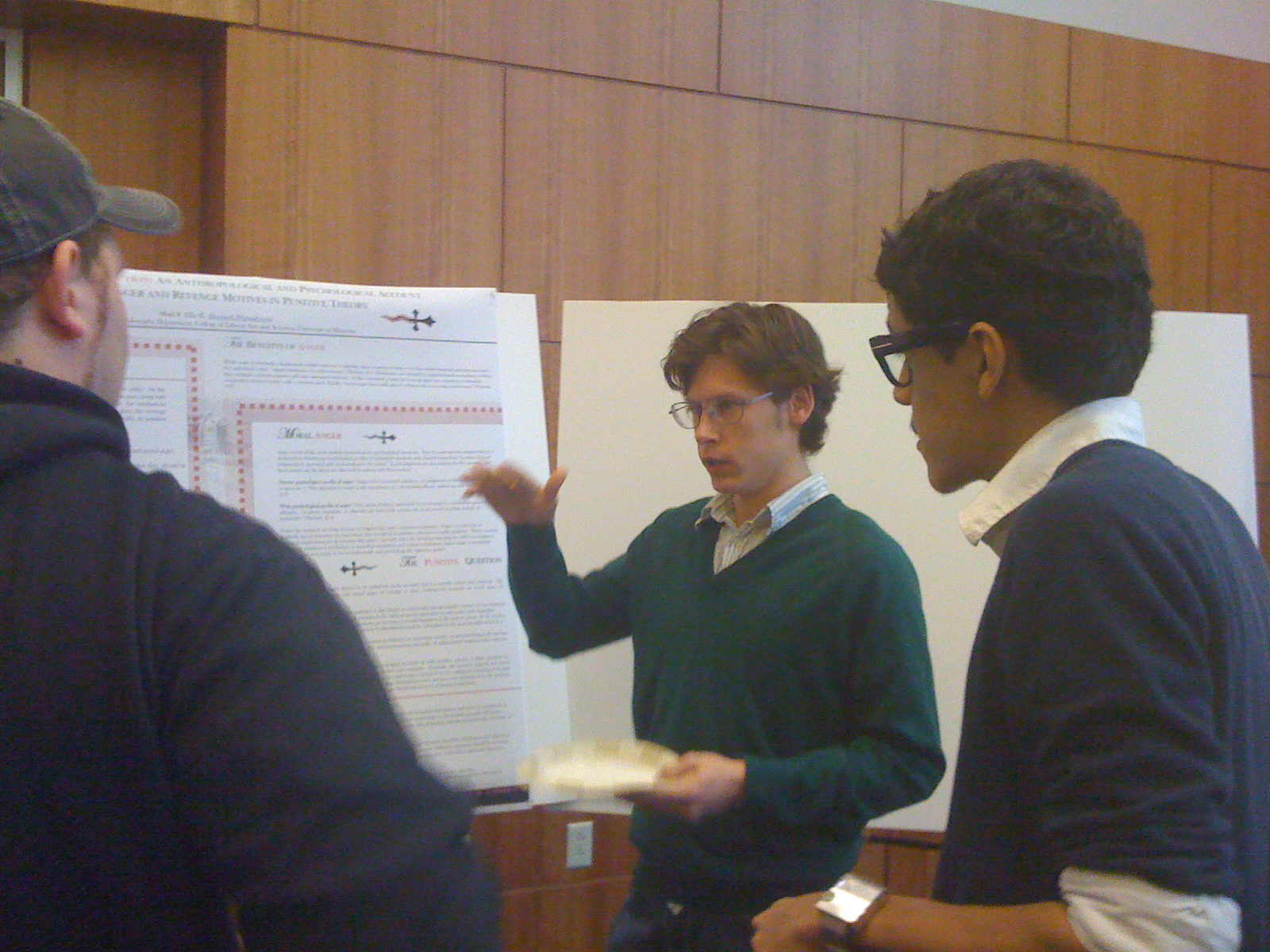Supported by a UH Quality Enhancement Plan (QEP) grant, Dr. Tamler Sommers recently finished teaching his philosophy course Punishment, a research-intensive course approved for The Honors College minor in Politics and Ethics (Phronesis).
The QEP grant enabled Dr. Sommers to redesign the course with a focus on undergraduate research, and the differences were apparent. At the semester’s end, each student presented his or her results in a poster presentation open to the public; the posters and oral presentations were complemented by traditional term papers on the same topic.
“It was nice to see the students really embrace their projects,” Dr. Sommers said. “Because the [poster] project forced the students to pick a topic that they would be happy to stand up and talk about, they showed some real excitement.”
“Theories of punishment make all kinds of assumptions about psychology and biology,” Dr. Sommers said. “The idea was first to figure out what each of those theories assumes, and then to investigate whether it holds up.”
Some projects addressed issues beyond psychology or biology. One student applied theories of punishment to the current trials in Rwanda, while others analyzed individual court cases to determine what they reveal about our own contemporary approaches to punishment.
The coursework was augmented by a visit in October from Dr. William Ian Miller of the University of Michigan Law School. In addition to his class visit, Dr. Miller gave a public lecture (“An Eye for an Eye”) and had lunch in The Honors Commons with students in the Phronesis program. “He left with a great impression of our students,” Dr. Sommers said. “He thought they were smart, bright without knowing it, enthusiastic, and curious.” And as his students were challenged by the unique demands of a research-intensive philosophy course, Dr. Sommers marked an improvement in their engagement and the quality of their work.
“The students exceeded any reasonable expectations that I had of them,” he said. “I was proud of the students for the way they worked, and I was very impressed with their projects.”





